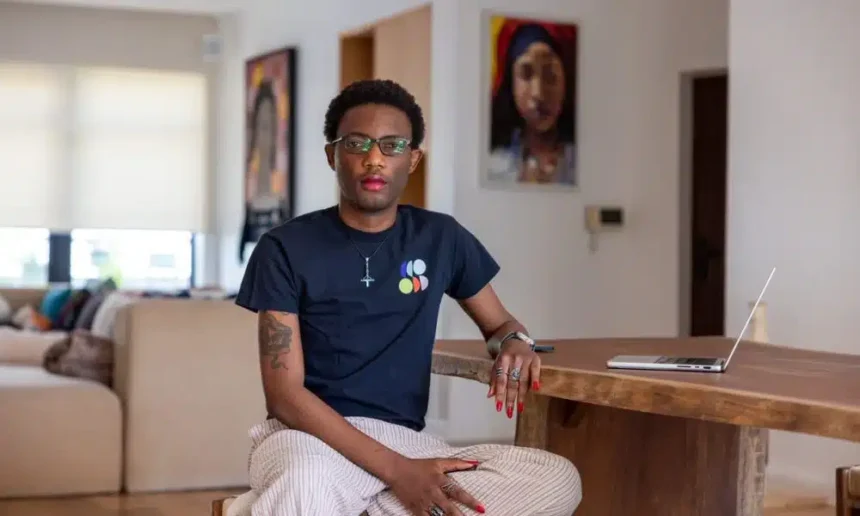Paystack co-founder Ezra Olubi has alleged that the company terminated his employment before completing an investigation into claims of sexual misconduct involving a subordinate, describing the process as unfair and contrary to the very policies he helped establish.
In a blog post published on Sunday, 23 November, Olubi stated that he was suspended a week earlier, as Paystack launched what it described as an “independent” investigation into allegations circulating online.
“This decision was taken before the supposed investigation was concluded, and without any meeting, hearing, or opportunity for me to respond to the issues raised, in clear contravention of the terms of the suspension and Paystack’s own internal policies,” he noted.
Olubi added that the approach breached Paystack’s internal procedures.
“My legal team is now reviewing the process that led to my purported termination, including its consistency with internal policies. They will take the steps they consider appropriate, and I will not be commenting further on this matter at this time,” he wrote.
Origins of the Allegations
The allegations first surfaced in mid-November, when an online post accused Olubi of inappropriate conduct with a junior employee.
The post prompted users to resurface several of Olubi’s decade-old tweets, including one in which he appeared to encourage inappropriate workplace touching.
“The posts being circulated do not reflect my conduct or the way I have lived my life,” Olubi said, though he did not address the specific tweets directly.
Following the initial claims, Paystack confirmed that Olubi had been suspended and that the company had initiated a formal investigation, stating that it intended to appoint an independent reviewer.
What You Should Know
Paystack has not yet issued a statement responding to Olubi’s claims. At the time of publication, it remained unclear whether the investigation had formally begun or how far it had progressed before his termination.
Olubi’s statement has largely focused on the process and procedural fairness, rather than a detailed rebuttal of the allegations themselves.
While he maintains that the circulating tweets misrepresent his conduct, he has not addressed the substance of the claims.
For much of the past decade, Paystack has been regarded as one of Africa’s most admired companies, celebrated for its culture, discipline, and operational excellence. This dispute now brings unprecedented scrutiny to those foundations.
Industry leaders say how Paystack navigates the next steps will be closely watched by employees, investors, and the wider ecosystem. The company’s handling of allegations involving senior leadership may set new expectations around accountability, due process, and corporate governance within African tech startups.
Impact on Startups Across Africa
The controversy surrounding Paystack’s handling of Olubi’s termination may have ripple effects across the African startup ecosystem. Startups often look to leading companies like Paystack as benchmarks for organisational culture and governance practices.
For founders and leadership teams, this case underscores the importance of establishing clear internal policies, fair investigative procedures, and transparent communication channels. It also highlights the risks of reputational damage when allegations involving senior executives are not managed carefully.
Investors and employees are likely to scrutinise startups more closely on how they handle workplace misconduct, particularly in companies where culture is a selling point.
For startups still building internal structures, Paystack’s situation serves as a cautionary tale on the critical need for robust HR policies, independent review mechanisms, and proactive risk management.
Talking Points
Paystack co-founder Ezra Olubi was terminated amid allegations of sexual misconduct, raising questions about how internal investigations are handled in startups.
The case highlights the complexities of addressing sensitive workplace issues when senior leadership is involved, and the importance of having clear procedures and policies in place.
At Techparley, we note that the situation serves as a reminder for startups to ensure transparent communication, structured investigation processes, and documented decision-making to promote organisational integrity.
The incident is likely to draw attention from investors, employees, and other startups regarding corporate governance and accountability practices in African tech companies.
It also underscores the broader need for startups to continuously review and strengthen their internal policies, ensuring they are equipped to manage allegations fairly, efficiently, and consistently.
——————-
Bookmark Techparley.com for the most insightful technology news from the African continent.
Follow us on Twitter @Techparleynews, on Facebook at Techparley Africa, on LinkedIn at Techparley Africa, or on Instagram at Techparleynews.





